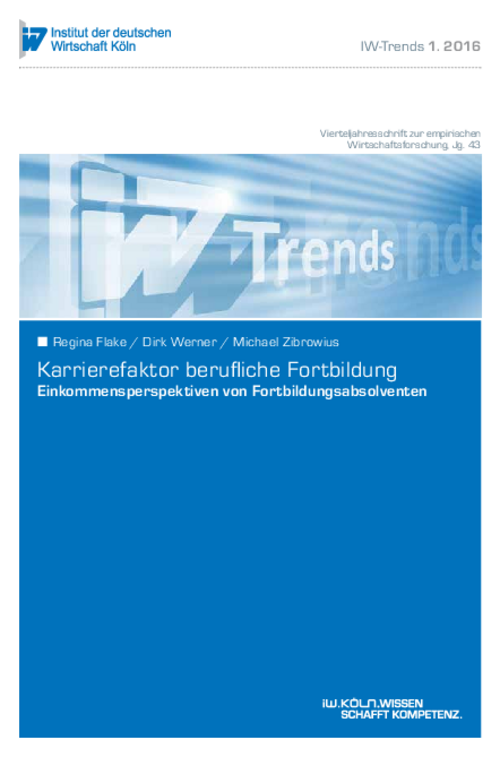The Income Prospects of Employees with Advanced Vocational Qualifications

Further Vocational Training as a Career Factor
IW-Trends

The Income Prospects of Employees with Advanced Vocational Qualifications
Germany’s formal system of qualifications largely ranks those who have completed advanced vocational training, e.g. to qualify as a Master or Technician, on a par with university graduates with a bachelor’s degree. Using personal and corporate data, the present paper examines the extent to which this formal parity also leads to equivalent income prospects. The results show not only that further vocational training ensures considerable career advancement over a first vocational qualification but also that those with advanced vocational training do indeed reach approximately the same income levels as those with a university degree. The majority of companies value the competences of those with advanced vocational training sufficiently to pay this group salaries at least comparable with those of university graduates. Overall, however, since both groups are in themselves very diverse neither can be said to have consistently better income prospects. Rather, the results depend on numerous additional factors such as subject area, the tasks actually performed and the sort of qualification obtained.

Regina Flake / Dirk Werner / Michael Zibrowius: Karrierefaktor berufliche Fortbildung – Einkommensperspektiven von Fortbildungsabsolventen
IW-Trends

More on the topic

Further training needs of the automotive industry in transformation
Due to the ecological and digital transformation, significant parts of the German economy, particularly the industrial sector, are currently undergoing a transformation. This development also extends to the automotive sector, which occupies a vital position in ...
IW
The Increasing Importance of Literacy Courses and Further Training for the Low-skilled
Digitalisation and the demographic transition are presenting companies with ever new challenges. This puts pressure on firms to be in a process of constant change, a phenomenon reflected in the growing demands they put on their low-skilled employees.
IW